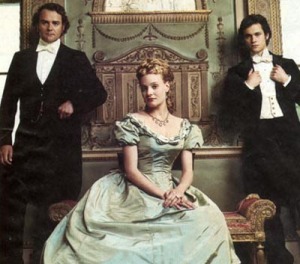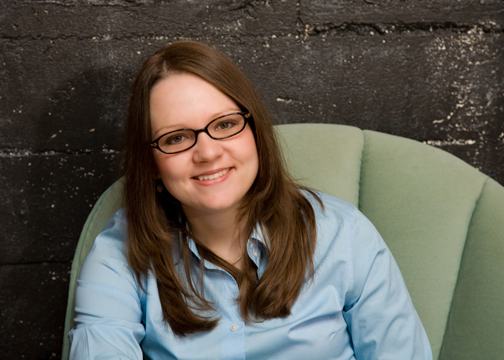 My mom and dad gave me a beautiful copy of George Eliot’s Daniel Deronda for Christmas, so I had just the excuse I’ve been needing to dive into this 800 page classic. Sure, it’s taken me awhile to read it, but the effort has been pure pleasure. This is one of the best books I’ve read in ages.
My mom and dad gave me a beautiful copy of George Eliot’s Daniel Deronda for Christmas, so I had just the excuse I’ve been needing to dive into this 800 page classic. Sure, it’s taken me awhile to read it, but the effort has been pure pleasure. This is one of the best books I’ve read in ages.
Some of you might be familiar with Eliot from her most famous novel, Middlemarch. Others might have read her shorter novel, Silas Marner, as part of a college literature course. That’s where I first encountered her work.
Eliot wrote at the end of the Victorian era, with over 40 years between Jane Austen’s final published book and Eliot’s first one. Daniel Deronda was her final work, written in 1876, a time when Thomas Hardy, Jules Verne, Mark Twain, Louisa May Alcott, and Fydor Dostoevsky were writing (Twain published Tom Sawyer in this same year).
When I mention that George Eliot is one of my favorite women writers, I often get funny looks. People wonder what sort of parent would name their girl “George.” In fact, “George Eliot” is merely a pen name for a single woman named Mary Ann Evans who wanted to be taken more seriously. It also didn’t hurt that the name gave her some anonymity from her scandalous living situation, with a married man.
Eliot turned her back on the church early in life, when she met free thinkers who made her question the miracles in the Bible. Her upbringing in the Church of England as well as her wide range of reading, give her insight into the workings of parish life, as depicted in many of her novels. So although they are situated in a “Christian” culture, they lack that deeper connection with Jesus and faith.
Although it’s hard to summarize an 800 page novel in a few sentences, I’ll do my best to give you gist of the book. The main character, Daniel Deronda, is the adopted son of a wealthy landowner named Sir Hugo, whose estate is entailed to his nephew, Grandcourt. Everyone assumes that Deronda is Sir Hugo’s son from out of wedlock, but nobody knows for sure who he is. Deronda loves to help people: a Cambridge chum, a Jewish woman he saves from drowning herself (Mirah Lapidoth), and Gwendolyn Harleth, who competes with Deronda for the role of main character. Gwendolyn is a beautiful, recently poor woman who falls into Grandcourt’s clutches and seeks Deronda’s help. Then, we get the classic love triangle, with Deronda in the middle and Mirah and Gwendolyn on either side.
Mixed with this relational intrigue, comes the larger political and philosophical focus of the work: Zionism. Here, in 1876, a full 72 years before Israel becomes a nation and 20 years before the Zionism movement gains full momentum in Europe with Theodor Herzl’s publication of The Jewish State, Eliot is making the case for a Jewish nation state in Palestine. Through the character Mordecai, she gives the arguments supporting the creation of Israel. But she also depicts anti-Semitism in all its ugly forms but turns each and every example on its head by giving alternatives pictures of real Judaism and Jewish people. The book doesn’t come across as preachy, but I can see how it could work to change negative attitudes about Jews.
At a time when the news constantly features tension in Israel, it’s worth looking back to the trials the Jews have faced before they got their own country, the reason why in 1948, they were granted their own nation state.
 For those who aren’t as interested in the Zionist elements of the plot, Gwendolyn Harleth’s character provides ample reasons to read the book. She’s considered by many to be Eliot’s finest character creation, and I can’t help but agree. A strong woman, wanting to have her freedom and independence but struggling to meet the demands a society places upon her, while also battling a conscience fraught with guilt, Gwendolyn transcends time and place and easily connects with a modern reader, who battles these same demons.
For those who aren’t as interested in the Zionist elements of the plot, Gwendolyn Harleth’s character provides ample reasons to read the book. She’s considered by many to be Eliot’s finest character creation, and I can’t help but agree. A strong woman, wanting to have her freedom and independence but struggling to meet the demands a society places upon her, while also battling a conscience fraught with guilt, Gwendolyn transcends time and place and easily connects with a modern reader, who battles these same demons.
I recognize that many of you aren’t about to read an 800 page novel. Instead, you might consider the BBC’s excellent 2002 production, written by the same screenwriter who wrote the Colin Firth Pride and Prejudice that I love so well. The casting is very good, especially for Deronda and Gwendolyn.


I had DD on my bed’s bookcase head board for years and years. Those also were the years I was tangling with two head strong kids; I never quite had enough time or wakefulness to plow through the 800 pages…despite my best intentions.
Thanks for the tip on the BBC take. I’ll catch that, and then re-visit the novel in a quieter space in my life.
AL: I know what you mean. I’ve got a couple massive novels that are that same way. It’s so much easier to pick up the shorter ones. Actually, Moby Dick is the one that I’ve been meaning to read FOREVER, but I just never get around to it. Why read about a guy chasing a whale when you could read about Victorian England?
I have not read this one by George Eliot but I did enjoy Adam Bede. Now I will have to read this one too.
AL: Haven’t read that one yet, but I recently purchased it, hoping to get to it soon. It might be nice for you to compare Eliot’s late work with her first novel.
So this was a strongly pro-Zionist book? Thanks for sharing about it.
AL: Strongly pro-Zionist. It’s truly an unexpected place to find such a strong Zionist message. I’d been told there were some Zionist elements in the book, but I wasn’t prepared for the full extent that was there. Aside from Leon Uris’ Exodus, I can’t say I’ve read a novel that discusses Zionism so much.
Although I have heard of this book, I had no idea what it was about. Thanks for the excellent review.
AL: It seems like it’s a familiar book, but I’ve only found one other person who I know who has actually read the thing. When she told me she read it, I was astounded that I actually found someone to talk to about it. I’m sure it has to do with the length. Otherwise, I imagine it would be more widely read.
I don’t know if I’ll ever get around to reading this one,but I LOVED, LOVED, LOVED the BBC’s production! However, I found your post very interesting as I enjoy hearing more about the author’s own histories. I had caught the Jewish connection, of course, in the BBC production but did not realize the extent of her support for a Jewish state in Palestine. Fascinating.
AL: Oh, good. I’m glad somebody else saw that and liked it too. =) I made my hubby watch it with me, and he didn’t protest too much, which was a good sigh. hehe. I think that like most movies, it played down the philosophical elements and played up the sexual tension, so to speak. There were some wonderful conversations about the importance of a Jewish state, that the movie only touched on. I also think that Mordecai was cast poorly in the movie. He was a little creepy and didn’t come off as smart as he did in the book. Still, the movie is well done, overall. And the actress who played Gwendolyn was stunning!
If you have the chance, you should read “George Eliot’s Life” by J.W. Cross. It is a collection of her letters and journals and is an interesting look at a very complex woman. It also shows that she herself was anti-semetic and only changed (adjusted?) her views later in life. Very worthwhile read if you are an Eliot fan.
AL: How interesting! She’s certainly an author about whom who I’ll be reading a lot more. Thanks for the recommendation.